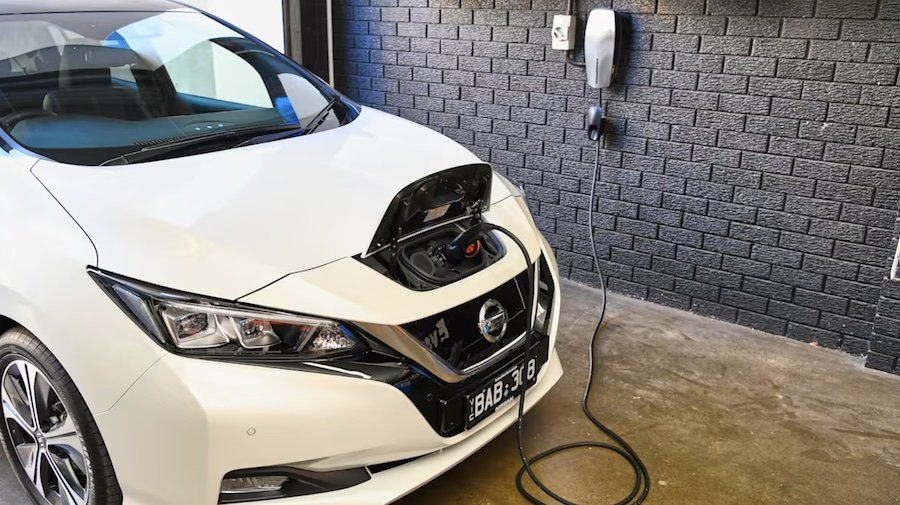Nissan Exec Says Nearly All LEAF EV Batteries Are Still In Cars

This article comes to us courtesy of EVANNEX, which makes and sells aftermarket Tesla accessories. The opinions expressed therein are not necessarily our own at InsideEVs, nor have we been paid by EVANNEX to publish these articles. We find the company's perspective as an aftermarket supplier of Tesla accessories interesting and are happy to share its content free of charge. Enjoy!
Posted on EVANNEX on September 18, 2022, by Charles Morris
Among the never-ending flood of “Don’t get me wrong—I love electric vehicles, but...” articles and posts, we read dire warnings that EV batteries will wear out in a few years, making the cars worthless, and that they can’t be recycled.
Oddly enough, the citizen journalists who write these pieces never seem to cite any sources for their helpful information about battery life. What do the people who work for automakers who’ve actually been selling EVs have to say about the issue?
Well, as Nissan’s UK Marketing Director Nic Thomas recently told Forbes, “Almost all of the [EV] batteries we’ve ever made are still in cars, and we’ve been selling electric cars for 12 years.”
The much-predicted glut of obsolete EV batteries has not materialized, despite the fervent hopes of the anti-EV crowd. As Carlton Reid explains in a recent Forbes article, unlike phones or laptops, EVs have sophisticated battery management systems (BMS) that are designed to maximize battery life. In the US, automotive battery packs are warranted against failure for 8 years or 100,000 miles by federal law, and industry experts expect most battery packs to last much longer than that. (Battery failure and battery degradation are two different things—all batteries lose capacity over time, and some drivers may find the gradual reduction in range unsatisfactory.)
“We haven’t got a great big stock of batteries that we can convert into something else,” said Thomas. “It’s the complete opposite of what people feared when we first launched EVs—that the batteries would only last a short time.” Many EV batteries may outlast their vehicles, then enjoy a second life in a stationary storage application before finally being recycled. “At the end of the vehicle’s life—15 or 20 years down the road—you take the battery out of the car, and it’s still healthy, with perhaps 60 or 70% of usable charge.”
“Taking the battery out [of an electric car] and putting a new battery in is not a viable proposition,” he adds. “It’s more sustainable to take the battery pack out of the car after 20 years, recycle the car, and reuse the battery. By far the easiest thing to do take the complete battery out of the vehicle, put it in a shipping container in a rack and plug that into a solar farm.”
To date, Nissan has collected only a small number of Leaf batteries—from crashed vehicles or warranty issues—and it has supplied some of these to providers of stationary storage. Thomas says that Nissan’s new factory currently under construction in Sunderland, England will use EV batteries to store energy from solar panels and wind turbines.
As for recycling, battery manufacturers, automakers and startup companies are working to develop what could someday be a major new industry. The European Union already regulates EV battery disposal, and is expected to update its regulations soon to establish targets for the recovery of specific minerals.
“There is already a very strong recycling industry for batteries in China,” said Thomas. “I’ve visited lots of plants in China where they grind the battery down to what they call black mass, which then enables them to extract all of the precious metals.”
The Volkswagen Group recently opened a battery R&D facility in Salzgitter, Germany, which will eventually recycle EV batteries.
Redwood Materials, a battery recycling firm led by Tesla cofounder JB Straubel, recently raised $700 million from investors to expand its Carson City, Nevada, operations. Straubel recently told Forbes that his company can already recapture usable quantities of metals at a lower cost than mining.
Demand for large-scale recycling probably lies some years in the future. “I’ll be very old and very retired by the time we actually need to do a lot of these things,” Nic Thomas told Forbes.
However, building a circular supply chain for batteries is a project that needs to proceed with all deliberate speed. The International Energy Agency (IEA) estimates current global recycling capacity at around 180,000 metric tons of batteries per year. Recycling experts told Forbes that the EVs sold in 2019 alone will eventually generate 500,000 metric tons of battery waste. The IEA says that by 2040, there could be 1,300 GWh worth of spent batteries in need of recycling.
Related News
